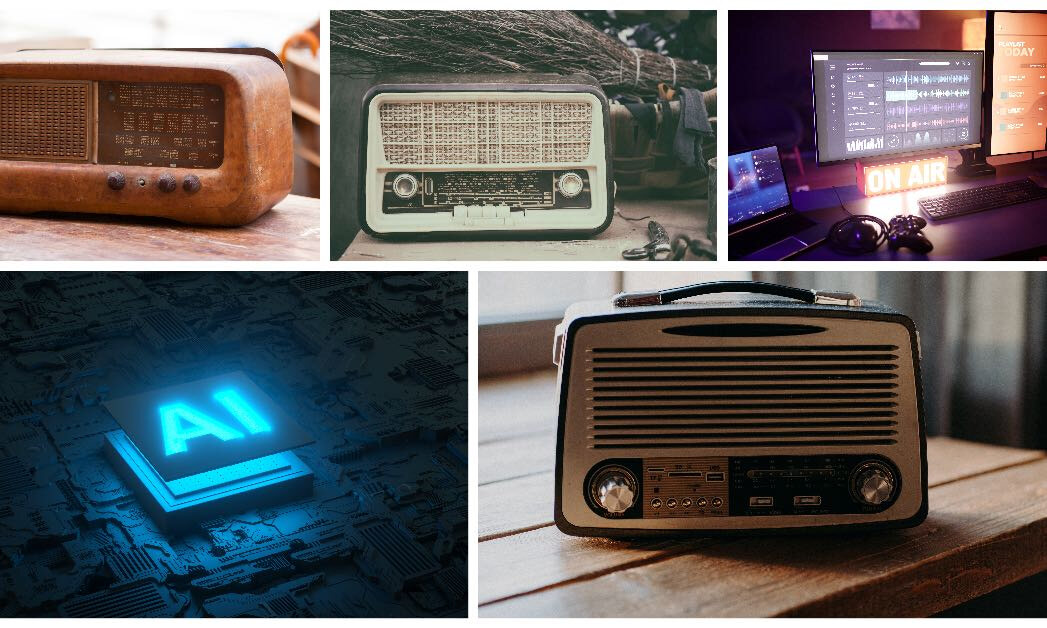Will AI Be the Death or Saviour of Radio?
The story hasn't been told much anywhere, but we soon could be seeing the biggest change to hit radio since it was invented in 1895. I'm serious.
Maybe though, RadioGPT will save the troubled radio industry?
And Now the News
Imagine listening to the news on a local radio station, only to find out the news copy was written by a computer. Now imagine the person reading that newscast isn’t a human, but instead a computer using a voice created by artificial intelligence. The radio newscast you’re listening to was totally done by a computer and not by a human.
It’s not far-fetched. In fact, it’s only weeks away from happening.
RadioGPT technology will debut at actual radio stations in mid-April, including Portland-based Alpha Media, which owns and operates more than 200 stations in the U.S.
To make matters worse, Rogers in Canada is looking closely at the technology and although it hasn’t said much about the work going on behind the scenes, it’s likely not far behind. Rogers owns 55-radio stations in Canada, including 13-in Alberta.
Proponents will point to Spotify and its new AI feature, called DJ, that already uses the same technology. To me, that’s fine for Spotify. Just don’t bring it to local radio.
I can’t wait to listen to a commuter try to pronounce the Alberta village of Waskatenau.
Career Killer
As someone who spent about 15-years writing and reading the news on radio, I think this is absolutely terrible.
It’s been my opinion for years the only way for local media of any kind to excel is to be really good at the local level. Anyone can get all the national and international news or music they want for free on the internet, but getting local news and information that really matters to them isn’t as easy.
Newspapers, TV and radio have all done the opposite to cut costs. More and more, they deliver a national product, with only a small amount of local content sprinkled in. Pick up a copy of the Edmonton Journal or Calgary Herald if you don’t know what I mean.
Rather than make investments in local coverage to try to drive sales and advertising, all forms of media have done the opposite and cut costs. It’s a race to the bottom. Now even the personalities on radio will be replaced by computers.
Think about the young people in broadcast schools like NAIT, SAIT and Mount Royal these days. Will there be jobs for them when they graduate, or will we have enough computers and AI to replace them?
What about the people working on-air in radio stations these days? I would suggest they get their resumes updated, but where are they going to apply if everyone goes to AI programming?
Silver Lining
On the other hand, local radio has been dying a slow death for the last 30-years. When I left radio around that long ago, I could see the days of news on FM radio were coming to an end. I was right. We had eight people in our newsroom at 96 K-Lite and our sister station CFCW had nine. Now the two stations have three in total. From 17 to three people reading and reporting the news, and now computers may eventually do the job for them.
Perhaps though, artificial intelligence will save radio from its apparent death?
The biggest cost of radio when I was in the business was labour. Radio stations employed around 35-people. You needed to sell a lot of advertising to pay those salaries and keep the lights on.
What if you don’t need announcers and newspeople? What if you only need a handful of people to run a radio station and the rest is done through RadioGPT? Could a decent product be created that would also serve a local audience?
Let’s face it. For many years, radio stations across Canada have been using voice tracking. That’s basically a computer that runs a radio station’s programming. It plays the music, commercials, sprinkles in local announcers telling you what station you’re listening to and everything else to create the illusion that somebody is behind the mic. I would bet you listened to this form of programming many times and never realized it, especially on weekends. It’s estimated as many as 70% percent of radio stations across North America are voice tracking.
When I first started in radio at CHQT in Edmonton, our overnight “show” was on a huge reel-to-reel tape. People would call the newsroom late at night asking me if I could ask the announcer to play a certain piece of classical music. I didn’t have the heart to tell people the announcer was actually in Seattle and created the program weeks earlier, before shipping the tapes to us.
I predict radio stations in North America will carefully dip their toes in the RadioGPT waters. They’ll start slowly and won’t make any major changes overnight, but as the technology gets better and listeners get adjusted to it, the day will come when we’ll be listening to computers talking to us instead of people.
Too much money can be saved, and in media today that’s all that seems to count.
Grant, another important consideration is our virtual assistant technology. 'Alexa' knows which radio station I listen to, what my favorite songs are, that I need to know the temperature and like a news update first thing in the morning. VAT is collecting data which will facilitate the advancement of this technology.
Great points Judy. It's a two-way street.
-Grant


Commentary